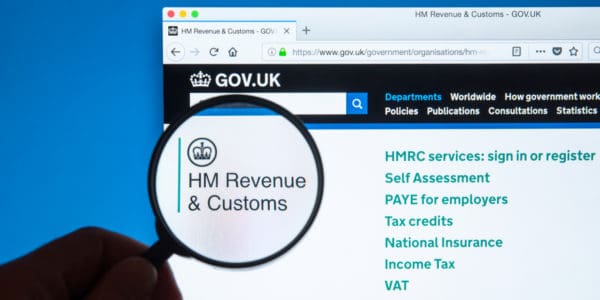The deadline for filing an online Self Assessment tax return for the 2023/24 tax year, which ended on 5 April 2024, is midnight on 31 January 2025. Any Income Tax and National Insurance due for the 2023/24 tax year must also be paid by midnight on 31 January 2025.
You do have the option to file Self Assessment tax returns by post if you’d rather. The deadline for submitting a paper tax return for the 2023/24 tax year is 31 October 2024. However, filing online is much easier, more secure, and results in fewer errors.
Do I need to file a Self Assessment tax return?
Self Assessment is the system that HMRC uses to collect Income Tax and National Insurance from self-employed individuals and anyone who receives unreported taxable income from other sources, including limited company directors, shareholders, and members of limited liability partnerships (LLPs).
You will need to complete a Self Assessment tax return if:
- you are a self-employed sole trader earning more than £1,000 per year
- you are a partner in a general business partnership or a member of an LLP
- your annual taxable income as an employee or pensioner is greater than £150,000
- you (or your partner) receive Child Benefit, and either one of you has an annual income greater than £60,000
- you earn £10,000 or more from savings, interest, or investment income
- you earn more than £2,500 in other untaxed income, such as:
- tips or commission
- cash-in-hand payments
- money from renting out a property
- foreign income
- you are an employee claiming more than £2,500 in expenses
- you owe Capital Gains Tax from selling assets at a profit
- you are a Minister of Religion
If you’re not sure whether you need to file a tax return, you can use HMRC’s online tool to check if you need to send a Self Assessment tax return.
How to file your Self Assessment tax return
You can file your Self Assessment tax return (form SA100) with HMRC in one of two ways:
- complete and submit form SA100 online
- download and complete form SA100 by hand and submit by post
The quickest and easiest way to send a Self Assessment tax return is online. You also get an extra three months to file an online return and it’s much easier to make amendments.
Registering for Self Assessment
Before you can file your first tax return, you must register for Self Assessment. You will also need to register if you did not send an online tax return last year.
Within 10 working days (or 21 days if your address is not in the UK) of registration, HMRC will send you a letter containing your 10-digit Unique Taxpayer Reference (UTR). You must then:
- create an online account
- use your UTR to sign up for the Self Assessment online service
Within 7 working days (or 21 days if your address is not in the UK) of signing up for the Self Assessment online service, HMRC will send you an activation code in the post. You will use this code and your UTR to sign in to your account and file your Self Assessment tax return online.
Completing your Self Assessment tax return
In order to complete your Self Assessment tax return correctly, you will need to provide personal information and details of all forms of taxed and untaxed income (where applicable), including:
- trading income from self-employment
- income from employment
- dividend income
- interest on shares
- foreign income
- tips or commission
- rental income
- bank interest
- inheritance
- pension contributions
- pension income
- redundancy payments
- charitable donations and Gift Aid
- benefits and allowances
- capital gains
- income from savings
You should also include information on any allowable business expenses that you wish to deduct from your tax bill.
Once you’ve submitted your Self Assessment tax return to HMRC, you should receive a confirmation message and reference number. HMRC will calculate the tax and National Insurance that you owe.
Whether you do your own bookkeeping and accounting or use the services of an accountant or tax advisor, you must keep accounting records of all income and business expenses.
Aside from making life easier, good record-keeping practice will ensure that your tax returns are accurate and you’re able to produce evidence of income and expenditure for HMRC if requested to do so.
Paying your Self Assessment tax bill
If you complete a paper Self Assessment tax return, HMRC will send your bill by post. If you file online, you can view your tax bill when you’ve completed your return (but prior to submitting it to HMRC).
Your final tax calculation can also be viewed online in your Self Assessment account approximately 72 hours after filing your online return.
Whether you choose to submit your tax return online or by post, you will need to pay your Self Assessment tax bill by midnight on 31 January after the end of the tax year that you are paying for. Payments can be made in one of the following ways:
- online or telephone banking (Faster Payments)
- CHAPS
- online by debit or corporate credit card
- at your bank or building society
- Bacs
- Direct Debit
- by cheque through the post
- set up a ‘budget payment plan’ to make regular advance payments
- through your PAYE tax code
If the Self Assessment payment deadline happens to fall on a weekend or bank holiday, you must ensure that your payment reaches HMRC by the last business day before the payment deadline (unless you choose to pay by Faster Payments or by debit or credit card).
It’s also worth noting that online payment services can be slow during busy times, so try to avoid paying your bill at the very last minute.
Self Assessment deadlines
There are several dates and deadlines to be aware of if you need to file a Self Assessment tax return. The Self Assessment deadlines for the 2023/24 tax year, which started on 6 April 2023 and ended on 5 April 2024, are as follows:
- Register for Self Assessment – 5 October 2024
- File a paper tax return – midnight on 31 October 2024
- File an online tax return – midnight on 31 January 2025
- Pay any Income Tax and National Insurance that you owe – midnight on 31 January 2025
If your Self Assessment tax bill is more than £1,000, you will have to make advance payments toward your 2024/25 tax bill by midnight on 31 January 2025, and again on 31 July 2025. These advance payments are known as ‘payments on account’.
If you fail to meet any of these deadlines, HMRC will impose penalties. To avoid further action or additional penalties, you should rectify the issue as soon as possible or contact HMRC for help or advice.
Self Assessment penalties
You will receive a penalty if you miss the deadline for filing your Self Assessment tax return or paying your tax bill, so it is very important to be aware of all Self Assessment deadlines and start preparing for your tax return and tax bill in good time.
The penalties imposed by HMRC are:
- Tax return up to 3 months late – £100, even if you have no tax to pay or your tax bill is paid on time
- Tax return outstanding after 3 months – £10/day up to a maximum of £900
- Tax return outstanding after 6 months – additional penalty of 5% of tax bill, or £300 (whichever is greater)
- Tax return outstanding after 12 months – another penalty of 5% of outstanding tax, or £300 (whichever is greater)
- Tax bill unpaid after 30 days – 5% of tax due
- Tax bill unpaid after 6 months – additional 5% of outstanding tax
- Tax bill unpaid after 12 months – another 5% of outstanding tax
If you are late paying your tax bill, you will also be charged interest on the outstanding tax.
If you cannot pay your Self Assessment tax bill on time
If you are unable to pay your Self Assessment tax bill on time, you must call HMRC’s Payment Support Service on 0300 200 3825 as soon as possible. You may be able to set up a payment plan to pay in instalments. You will have to pay interest on the outstanding tax until your bill is paid in full, but you may be able to avoid penalties.
Tax is a priority debt. If you do not contact HMRC or simply try to avoid paying your bill, HMRC will take steps to recover the debt, including collecting the tax through your earnings or pension, your bank account, through repossession, or by appointing a debt collection agency.
Please note that the information provided in this article is for general informational purposes only and does not constitute legal, tax, or professional advice. While our aim is that the content is accurate and up to date, it should not be relied upon as a substitute for tailored advice from qualified professionals. We strongly recommend that you seek independent legal and tax advice specific to your circumstances before acting on any information contained in this article. We accept no responsibility or liability for any loss or damage that may result from your reliance on the information provided in this article. Use of the information contained in this article is entirely at your own risk.






Join The Discussion